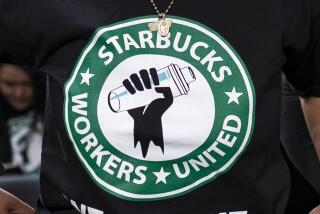Cheesecake Factory execs to repay $1 million
Current and former executives of Cheesecake Factory Inc. -- including Chief Executive David Overton -- will return $1 million in pay tied to improperly dated stock option grants, the company said Monday.
The restaurant chain also said it would restate earnings for 2003 to 2005 and the first quarter of 2006 to reflect $5.5 million in previously unrecorded, noncash compensation expenses. In addition, the Calabasas Hills-based company said it would overhaul internal oversight of its pay practices and expand the board of directors to improve its corporate governance.
The actions follow an internal review by Cheesecake Factory’s board of directors of stock option grants dating back to the company’s 1992 initial public offering.
The board’s audit committee recommended that Overton, former Chief Financial Officer Gerald Dietchle -- who left in 2004 -- and members of the board’s compensation committee return pay linked to misdated options. All have agreed, the company said.
Such “clawbacks” are becoming increasingly common as companies attempt to defuse investor anger over the backdating of stock options, experts said. Nearly 200 companies have said their option-dating practices are under investigation internally or by federal regulators, and more than 50 corporate officers have been fired or resigned.
Last week, Bruce Karatz retired as CEO of Los Angeles home builder KB Home amid a controversy over stock options.
“We’ve started seeing a steady stream of these recoupments,” said Patrick McGurn, general counsel of Institutional Shareholder Services, which advises large investors such as pension funds.
In terms of restoring investor trust, “this is sort of a threshold issue,” McGurn said. “You’d better make sure the shareholders are made whole.”
Cheesecake Factory said its investigation found no evidence of intentional deception regarding the option grants. The issue of dismissing executives was weighed as part of the investigation but was “deemed unnecessary” by the board’s audit committee, Chief Financial Officer Michael Dixon said. Overton, who is also chairman, is not a member of the committee.
Options are the right to buy stock at a set price within a certain time period. Probes are focusing on whether companies cherry-picked dates going back weeks or even months to tie option grants to the lowest possible stock prices, thereby fattening the gains when the options were cashed in.
Cheesecake Factory said that in most cases its grants allowed options to be tied to the lowest stock price within a 30-day window. The amount being repaid is based on the difference between what the options were worth when cashed in and how much they would have been worth if the correct dates had been used.
The company’s probe, conducted by outside attorneys, found problems with grants made from 1997 to 2004 to executives, other employees and outside directors.
In addition to revamping compliance and compensation practices, the company said it would increase the size of its five-member board by as many two members. Institutional Shareholder Services’ corporate governance rankings ding companies for having fewer than six board members.
The Securities and Exchange Commission is still conducting an informal inquiry of the company’s option practices.
Cheesecake Factory said it would release third-quarter earnings Nov. 30. The company, which operates 118 restaurants and made $87.5 million last year on revenue of $1.2 billion, has delayed filing its second- and third-quarter results while its options probe was underway.
The company’s stock rose 37 cents to $28.57 on Monday. It is down about 24% this year.
Overton, who opened the first Cheesecake Factory in Beverly Hills in 1978 and owns 5.4% of the company, was paid $914,270 last year in salary, bonus and other compensation. He also received stock options worth $5.1 million, assuming the company’s stock price appreciates at a 10% average annual rate, and exercised options valued at $2.2 million.
.com
More to Read
Inside the business of entertainment
The Wide Shot brings you news, analysis and insights on everything from streaming wars to production — and what it all means for the future.
You may occasionally receive promotional content from the Los Angeles Times.










